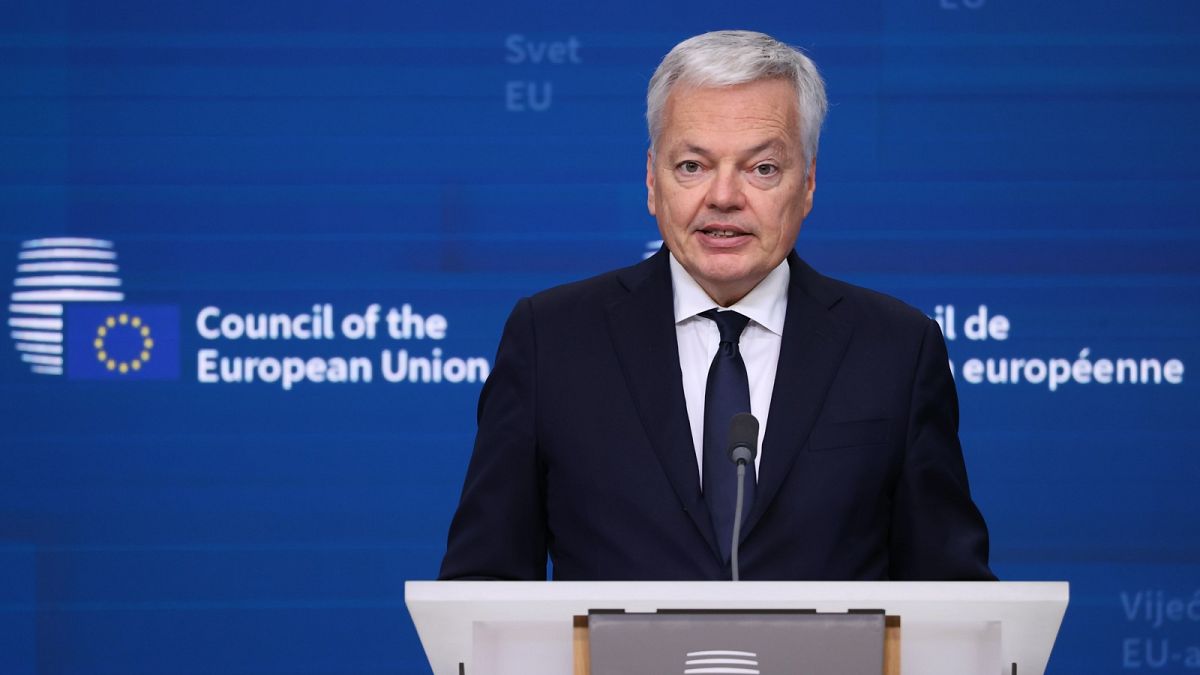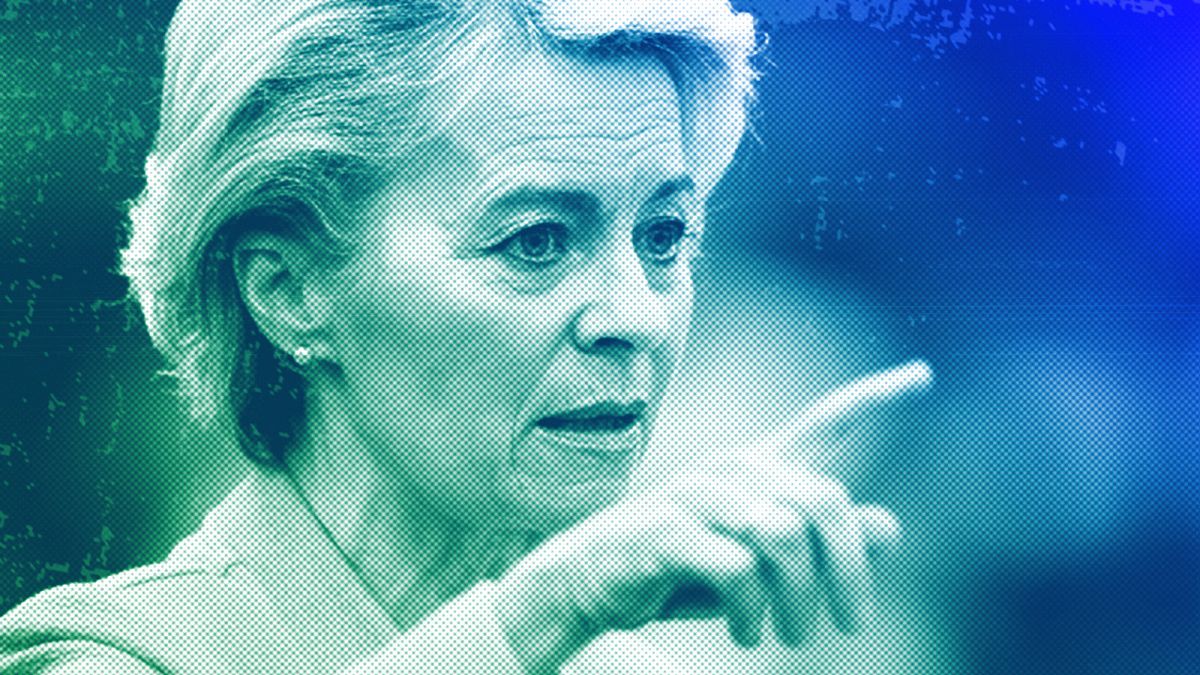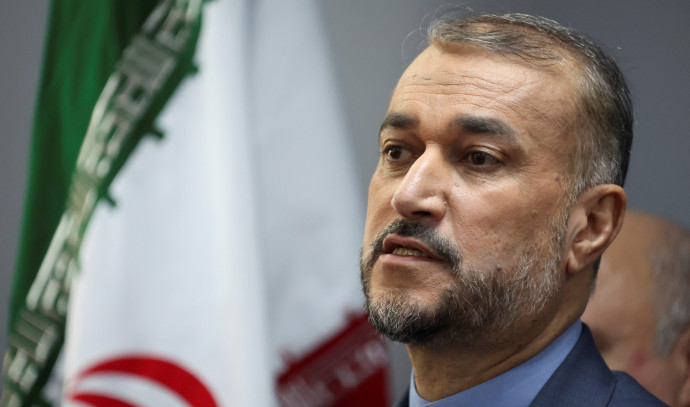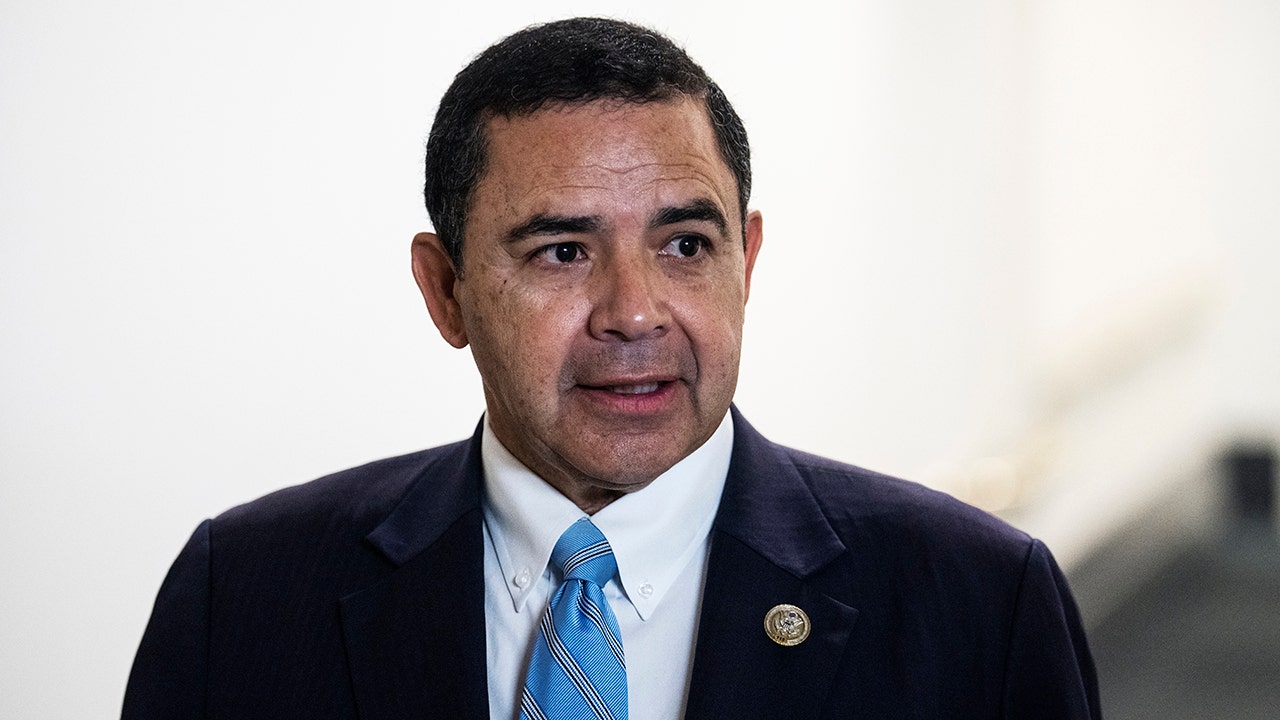World
EU Commission won't yet trigger 'nuclear option' against Hungary

The European Commission will not push forward Article 7, the so-called nuclear option, against Hungary over breaches of fundamental rights until there is a strong majority in favour among member states.
“It’s not possible for the Commission to take a decision in the process,” Didier Reynders, the European Commissioner for Justice, said on Monday afternoon.
Hungary has been under the first phase of Article 7 since 2018 over the democratic backsliding overseen by Prime Minister Viktor Orbán, who is accused of weakening judicial independence, perpetuating cronyism, diluting media pluralism, abusing emergency powers, passing anti-LGBT legislation and hindering asylum rights.
Although unrelated to the rule of law, Orbán’s decision last month to single-handedly veto a proposed €50-billion fund to provide Ukraine with long-term financial assistance has drastically increased the exasperation in Brussels, leading to calls for forceful action. The decision will be re-discussed later on Thursday in a high-stakes extraordinary summit.
In a scathing resolution voted earlier this month, the European Parliament demanded Article 7 shift to second gear and conclude the “existence of a serious and persistent breach” of fundamental rights inside Hungary. But this new step, which has never been activated, requires a written proposal by the European Commission or one-third of member states.
Once the proposal is tabled, EU leaders can hold a unanimous vote – minus the accused country – to declare the serious legal breach.
“There is no decision in the Commission at this moment in time to trigger the next step under Article 7,” Reynders said after a meeting of European affairs ministers in Brussels.
“The reason for that is quite simple,” he added, pointing the finger directly at the lack of consensus within the Council.
Although some diplomats have suggested the mood to ratchet up Article 7 has become more favorable in light of Orbán’s veto and his “transactional” demands, Reynders made it clear the required unanimity was still a remote scenario.
“There is nothing worse than submitting a proposal only to see this proposal rejected,” Reynders told reporters.
“If there is a clear signal in the Council about the possible majority or qualified majority, or at the end, maybe not so far, a unanimity to take a decision, of course, the Commission will follow the position of member states.”
Slovakia’s Robert Fico, who previously expressed reservations about the €50-billion fund for Ukraine, and Italy’s Giorgia Meloni, who has tried to position herself as a mediator between Budapest and Brussels, are among the leaders who might be hesitant to move Article 7 forward.
Once the “serious and persistent breach” is determined, Article 7 can lead to a third phase: the suspension of membership rights, including voting rights. Depriving Orbán of his veto power would resolve the impasse over Ukraine aid and immediately provide Kyiv with the necessary liquidity to plug its ballooning budget deficit.
But turning Hungary into a powerless, second-class member state would be a radical move with unpredictable consequences. Speaking on condition of anonymity, a senior EU diplomat said last week that ramping up Article 7 would be “inappropriate” while the bloc is knee-deep trying to find a solution among the 27 countries.
Others, however, have become more vocal in their irritation.
“We really hope the way forward will happen through a 27-countries solution but, of course, all options should be on the table,” said Anders Adlercreutz, Finland’s minister for European affairs, before heading into Monday’s meeting.
“We need to explain to the Hungarian people: Do they want to be the ones who will say to Ukrainians ‘Sorry, we leave you alone and just try to help yourselves’? We shouldn’t forget our own history and that we were happy to have the support of others,” said Luxembourg’s Xavier Bettel, referring to the liberation of Europe during WWII.
From Budapest, Orbán and his deputies have vowed to stand their ground, although the fact they have made requests in exchange for lifting the veto suggests there is space, albeit limited, to reach a compromise of sorts during the extraordinary summit.
Meanwhile, in a sharp reflection of the growing exasperation in Brussels, the Financial Times reported the existence of a “confidential” plan to “sabotage” Hungary’s economy if Orbán refuses to lift his veto. The alleged scheme would freeze all EU funding to Budapest, unleash a run on the national currency and spook foreign investors.
A senior EU official acknowledged the existence of a “factual paper” about the state of Hungary’s economy drafted by the Council’s secretariat which “makes a suggestion that is not in line with the course of actions of negotiations.”
Hungary’s Minister for European Affairs János Bóka struck back, saying “the document, drafted by Brussels bureaucrats, only confirms what the Hungarian government has been saying for a long time: access to EU funds is used for political blackmailing.”

World
Night Court Renewed for Season 3

ad
World
Colombia cuts diplomatic relations with Israel, but its military relies on Israeli technology

Colombia has become the latest Latin American country to announce that it will break diplomatic relations with Israel over its military campaign in Gaza, but the repercussions for the South American nation could be broader than for other countries because of longstanding bilateral agreements over security matters.
Colombian President Gustavo Petro on Wednesday described Israel’s actions in Gaza as “genocide,” and announced his government would end diplomatic relations with Israel effective Thursday. But he didn’t address how his decision could affect Colombia’s military, which uses Israeli-built warplanes and machine guns to fight drug cartels and rebel groups, and a free trade agreement between both countries that went into effect in 2020.
Also in the region, Bolivia and Belize have severed diplomatic relations with Israel over the Israel-Hamas war.
COLOMBIA’S PRESIDENT SAYS HUNDREDS OF THOUSANDS OF PIECES OF AMMUNITION HAVE GONE MISSING FROM MILITARY BASES
Here’s a look at Colombia’s close Israel ties and fallout:
WHY IS SECURITY COOPERATION BETWEEN COLOMBIA AND ISRAEL IMPORTANT?
Colombia and Israel have signed dozens of agreements on wide-ranging issues, including education and trade, since they established diplomatic relations in 1957. But nothing links them closer than military contracts.
Colombia’s fighter jets are all Israeli-built. The more than 20 Kfir Israeli-made fighter jets were used by its air force in numerous attacks on remote guerrilla camps that debilitated the Revolutionary Armed Forces of Colombia. The attacks helped push the rebel group into peace talks that resulted in its disarmament in 2016.
Colombian President Gustavo Petro speaks at the International Workers’ Day march in Bogota, Colombia, on May 1, 2024. Petro on Wednesday announced his government would end diplomatic relations with Israel. (AP Photo/Fernando Vergara)
But the fleet, purchased in the late 1980s, is aging and requires maintenance, which can only be carried out by an Israeli firm. Manufacturers in France, Sweden and the United States have approached Colombia’s government with replacement options, but the spending priorities of Petro’s administration are elsewhere.
Colombia’s military also uses Galil rifles, which were designed in Israel and for which Colombia acquired the rights to manufacture and sell. Israel also assists the South American country with its cybersecurity needs.
WILL PETRO’S ANNOUNCEMENT AFFECT COLOMBIA’S MILITARY-RELATED CONTRACTS WITH ISRAEL?
It remains unclear.
Colombia’s Foreign Ministry said Thursday in a statement that “all communications related to this announcement will be made through established official channels and will not be public.” The ministry didn’t immediately respond to a request for comment from The Associated Press, while the Israeli Embassy in Bogota declined to address the issue.
However, a day before Petro announced his decision, Colombian Defense Minister Iván Velásquez told lawmakers that no new contracts will be signed with Israel, though existing ones will be fulfilled, including those for maintenance for the Kfir fighters and one for missile systems.
Velásquez said the government has established a “transition” committee that would seek to “diversify” suppliers to avoid depending on Israel. He added that one of the possibilities under consideration is the development of a rifle by the Colombian military industry to replace the Galil.
Security cooperation has been at the center of tensions between the two countries. Israel said in October that it would halt security exports to Colombia after Petro refused to condemn Hamas’ Oct. 7 attack on southern Israel that triggered the war and compared Israel’s actions in Gaza to those of Nazi Germany. In February, Petro announced the suspension of arms purchases from Israel.
For retired Gen. Guillermo León, former commander of the Colombian air force, the country’s military capabilities will be affected if Petro’s administration breaks its contract obligations or even if it complies with them but refuses to sign new ones.
“At the end of the year, maintenance and spare parts run out, and from then on, the fleet would rapidly enter a condition where we would no longer have the means to sustain it,” he told the AP. “This year, three aircraft were withdrawn from service due to compliance with their useful life cycle.”
WHAT IS THE TRADE RELATIONSHIP BETWEEN THE TWO COUNTRIES?
A free trade agreement between Colombia and Israel went into effect in August 2020. Israel now buys 1% of Colombia’s total exports, which include coal, coffee and flowers.
According to Colombia’s Ministry of Commerce, exports to Israel last year totaled $499 million, which represents a drop of 53% from 2022.
Colombia’s imports from Israel include electrical equipment, plastics and fertilizers.
Neither government has explained whether the diplomatic feud will affect the trade agreement.
World
Meloni plans to rally Europe's centre-right in elections pledge

In the run-up to the European elections in June, Euronews takes a closer look at the Brothers of Italy party leader and the country’s prime minister’s speech in Pescara.
The Brothers of Italy’s conference in Pescara was more than a party gathering to launch Meloni’s electoral campaign.
The event marks a key moment in the run-up to the European elections in June, with the Italian prime minister’s address last Sunday providing crucial insight into her conservative leadership in Europe and her EU goals.
At the event, she announced that voters should use just her first name on their ballots. “Call me Giorgia,” she said.
The move is legal, and while many, including her rivals, have criticised her decision, it aligns with her image as a leader with working-class roots who took her first step into politics in Rome’s Garbatella district.
In both her role as Italy’s PM and president of the ECR group, Meloni outlined her vision for Europe.
Notably, she spoke of Brothers of Italy’s increased support over the years since the last European elections in 2019, while commenting on her ambitions to extend what her party has achieved in Italy to the rest of Europe.
“We want to do in Europe what we did in Italy … create a majority that brings together the centre-right forces and send the left into opposition,” Meloni said in Pescara in what has since been highlighted as a key statement.
Alliances based on issues, not ideals
A closer look at Meloni’s speech can help better understand what she has in mind. As ECR Co-Chairman Nicola Procaccini told Euronews, “Meloni refers to a spectrum of positions which sees both the ECR and the EPP as the two main axes when she talks about the creation of a majority that brings together centre-right forces.”
“Then, some delegations from ID in the right-wing camp,” adds Procaccini, “along with others from Renew Europe … will make up the total number that is needed to reach the majority to vote in favour of some measures.”
According to Procaccini, it is crucial to understand that the idea of “majority” within the new 720 seats-strong European Parliament is not fixed and that finding common ground with other political forces remains a possibility.
“Majorities or minorities form themselves based on the single vote. I do believe that the balance within the next European Parliament will shift to the right,” Procaccini said, adding that the EPP and a large part of Renew Europe are already voting alongside ECR, PiS or Viktor Orban’s Fidesz.
“It’s already happening today,” Procaccini continued, “not because there’s a deal in place, but based on the issues we are voting on.”
And as for sending the left into opposition, “it’s about giving the EPP the possibility to break the bond it has built with the socialists and the greens,” Brothers of Italy MP Sara Kelany told Euronews.
-

 News1 week ago
News1 week agoLarry Webb’s deathbed confession solves 2000 cold case murder of Susan and Natasha Carter, 10, whose remains were found hours after he died
-

 World1 week ago
World1 week agoHaiti Prime Minister Ariel Henry resigns, transitional council takes power
-

 News1 week ago
News1 week agoFirst cargo ship passes through new channel since Baltimore bridge collapse
-

 World1 week ago
World1 week agoSpanish PM Pedro Sanchez suspends public duties to 'reflect'
-

 World1 week ago
World1 week agoUS secretly sent long-range ATACMS weapons to Ukraine
-

 Movie Reviews1 week ago
Movie Reviews1 week agoHumane (2024) – Movie Review
-

 News1 week ago
News1 week agoAmerican Airlines passenger alleges discrimination over use of first-class restroom
-

 Education1 week ago
Education1 week agoVideo: Johnson Condemns Pro-Palestinian Protests at Columbia University

















